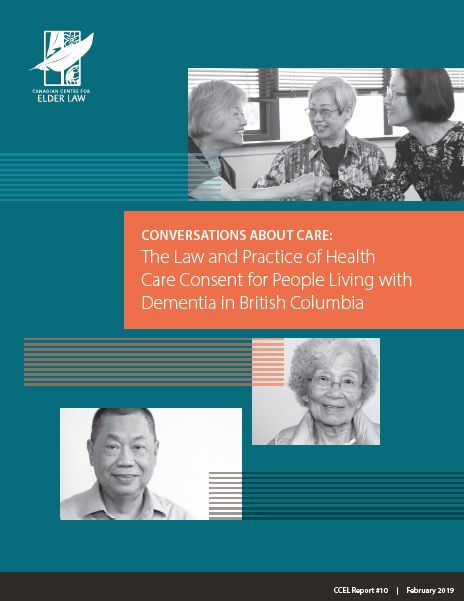
Our right to make our own health care decisions is a fundamental right protected by BC laws, the Canadian Charter of Rights and Freedoms, and international conventions and treaties. Unfortunately, sometimes health care professionals and family do not respect the rights of people living with dementia. Sometimes others assume that people living with dementia are not able to understand information or make their own decisions.
In 2016 the Canadian Centre for Elder Law and the Alzheimer Society of B.C. worked together to study health care decision-making for people living with dementia in BC.
We wanted to better understand:
• What does the law say about the right to make medication and treatment decisions at home, in hospital, and in long-term care?
• Who is entitled to make decisions for people living with dementia if and when they are not able to make their own decisions?
• Do health care providers adequately understand health care consent law?
• What options do people have when they disagree with decisions others make about their health care?
• How can BC laws be improved to better support the decision-making autonomy and well-being of people living with dementia?
• What can be done to further support best practice in hospitals, physician offices, and long-term care facilities?
This publication explains:
- How we did this work
- What we learned
- What we think should be done to improve the health care and legal systems.''
Access the 12-page summary report here
Source: Canadian Centre for Elder Law

















